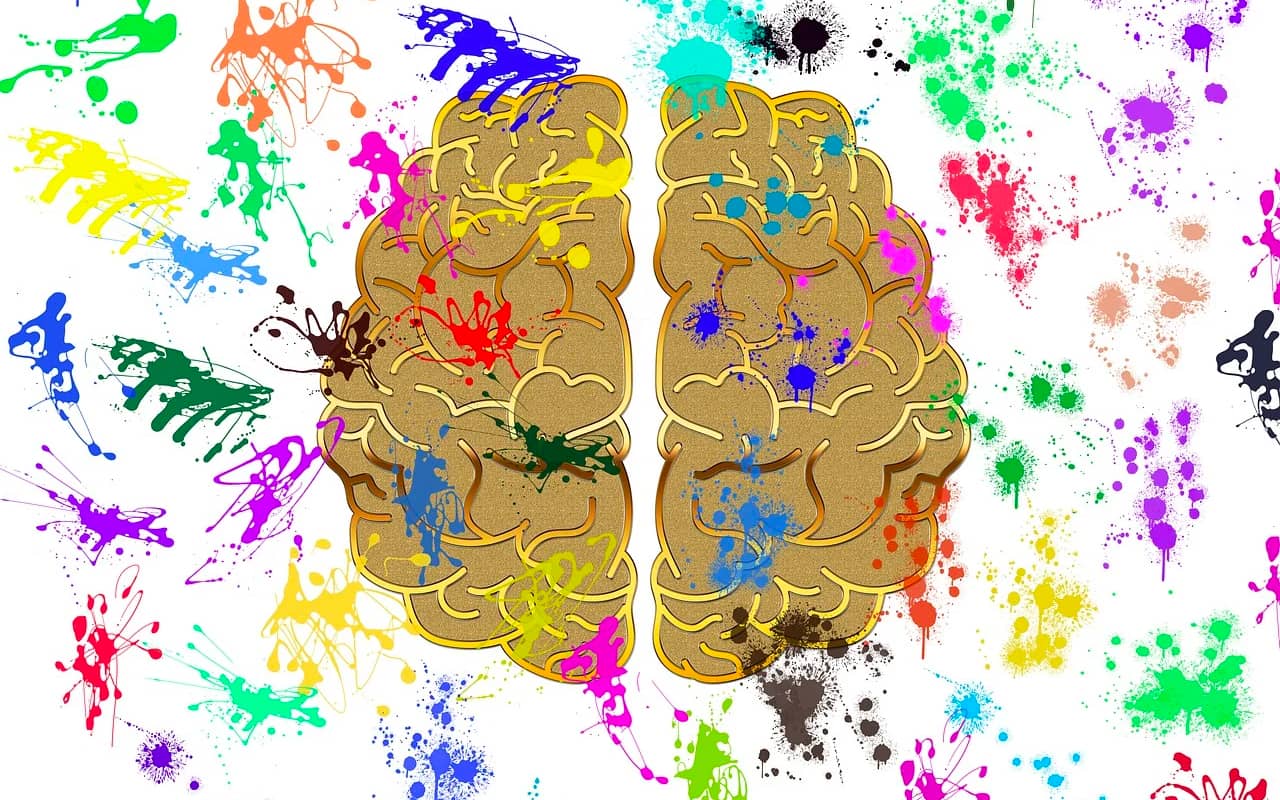Podcast: Download
Subscribe: Apple Podcasts | RSS
 Is intelligence fixed? Of course not.
Is intelligence fixed? Of course not.
Think about artificial intelligence. It’s been improving each and every year.
And so has human intelligence.
As you’ll see, the rise in human intelligence is easily demonstrated by looking at the improvement of IQ scores over the years.
However, there is a catch. Lately, IQ levels are showing signs of slipping.
Nonetheless, the evidence shows that not only can your intelligence change. There are also guaranteed ways you can improve it.
You just need to be willing to set specific learning goals and then show up to complete them.
Because if you don’t, your intelligence will almost certainly degrade.
So if you’ve been hoping to get smarter, stick around.
On the page we’re taking a deep dive into malleable intelligence and putting the power of change directly into your hands.
Is Intelligence Fixed?
In Genetics and Education, Arthur Jensen famously said that “intelligence, by definition, is what intelligence tests measure.”
In other words, intelligence cannot be fixed because it is the tests that define it, not some intrinsic quality of the brain.
And since tests are changing all the time, this means that the definition of intelligence also changes.
Updated definitions are normal in science. Even the definitions of crystal and fluid intelligence have changed over time as new ways of looking at the topic have evolved.
What Exactly Does “Intelligence” Mean?
Of course, the word “intelligence” needs more definition. According to James Flynn in What Is Intelligence?, we need to look at a bare minimum of six categories:
- Mental acuity (dealing with problems you’ve never seen before)
- Mental habits (ability to learn new things and apply them, like memorizing new vocabulary and using it in context)
- Mental attitudes (the willingness to apply oneself to developing mental habits)
- Knowledge accumulation (the more you know, the more you can know)
- Assimilation speed (as you develop pattern recognition, you’ll learn faster)
- Memory (ability to access information)

In each of the definitions of intelligence Flynn lists, change is a given. Even by virtue of seeing a problem you’ve never encountered before, your intelligence undergoes change.
How could it not?
So, when we’re asking questions like, is IQ genetic or learned?
The answer doesn’t matter.
Here’s what does:
Intelligence undergoes constant change.
We know this because new information is always coming at you and always exercising your memory. Even your dreams can cause your intelligence to change as they bring you new insights about yourself or trigger old memories from your past.
The real question comes down to the category of mental attitude, which itself boils down to the question of mental strength.
What Does Malleable Intelligence Mean?
Have you ever heard about neuroplasticity? It means that our neurons literally reorganize and “rewire” themselves.
In other words, the structures of our brain change the brain as they grow.
Since “malleable” means “changeable,” then the meaning of malleable intelligence is changing intelligence.
Because we know that the brain physically changes, so too must the content of the brain transform. And it’s only because the brain is malleable (changeable) that we’re able to learn anything at all.
As discussed in the Handbook of Intelligence:
“IQ scores can change significantly in a short period of time but, more importantly… targeted interventions can improve performance on the cognitive processes assessed in intelligence measures, contradicting the belief that our intelligence is fixed.”
Echoing Flynn, the authors of this handbook talk a lot about the importance of mindset. If you want to change your attitude you can.
The Attitude Of Parents Is Critical
Researchers have shown that how parents think about the malleability of intelligence deeply influences their children. Parents who express to their children that their intelligence can be shaped help actualize positive transformation.
Similar studies have shown that teachers and professors have the same effect on their students. If the instructor believes that your intelligence is fixed, then they might influence you into behaving as if it is.
However, if they know that intelligence is malleable, they are much more likely to help you improve your level of intelligence.
A Sad Personal Example Of A Negative Professor
It was my third year as a teaching assistant during my PhD. I was teaching under the main professor of a course called The Networked Imagination. It was all about the history of the Internet.
On the first day, the professor I was assisting stood in front of over 500 students in the lecture hall. She said that 90% of them
would fail. 50% of them wouldn’t even pass the first exam.
Crazy, right?
It is, but it happens in schools all the time.
And it needs to stop.
Is There Hope?
The scientific finding that we influence each other’s ability to improve our intelligence means one thing:
Parents and teachers in particular must be educated about intelligence and also think critically about the role it plays in the daily lives of their families.
However, in another book called How to Improve your Mind, Flynn acknowledges a very sad fact:
“There will never be a time when everyone wants to think critically.”
This is especially sad given the free availability of some of the best critical thinking strategies for everyone.
How to Increase Your IQ (Starting Today)
I agree with Flynn that critical thinking is the key to improving your intelligence. Even if your IQ does change with age, you’ll still benefit from being able to question the role of intelligence in your life.
How do you develop solid critical thinking skills? You can start by educating yourself about:
- Analytical thinking
- Logical vs. rational thinking
- Reflective thinking
- Independent thinking
- Reasoning skills
- Objective vs subjective reasoning
And that’s just for starters. You can also complete some critical thinking exercises and read critical thinking books.
But of all of Flynn’s six categories, memory is probably the most important if you want to improve your IQ.

Memory Isn’t Fixed Either
One of the fastest ways to improve each of the six categories of intelligence identified by Flynn is to develop your memory skills.
In Memory and Intelligence by Jean Piaget and Bärbel Inhelder, the authors make it very clear that we need to take action in order to learn.
They found that children who make associations based on stories learned faster and actively recalled more with greater accuracy.
If you’re interested in using memory techniques to boost your intelligence, it’s a good idea to start small.
For example, you can learn to memorize the planets in order or size or distance from the sun.
Or you could commit all the presidents to memory and even add in all the US States. You might even add a prayer to memory.
If you do that, isn’t the question of whether or not intelligence is fixed easy and obvious to answer?
Before you know the planets or the presidents in order, you always had the potential to do so. After you’ve learned just one new planet or name, you have changed your intelligence.
And if you’d like to get started with a slightly more ambitious memory improvement program, give this free course a try:
If The Real Problem Is Mental Attitude…
Now that we know fixed intelligence is a myth, what about attitudes? After all, a lot of people certainly seem to be stubborn and beyond change.
Fortunately, there are a few things we can do.
One thing we can do is simply work on expanding the mind. Changing the terminology from “changing” to “expanding” could be just the trick a stubborn person needs.
You can also work on improving your concentration. As I discussed in The Victorious Mind, one reason so many people can’t learn memory techniques is that they can’t focus long enough to complete a memory goal.
It’s not their fault. The Internet is literally using the fact that our brains are malleable to ruin our attention spans. The problem has been well-studied and is called digital amnesia.
Ultimately, attitude change brings us back to the role of influence from parents and teachers.
According to the authors of The Psychology of Attitudes and Attitude Change, social influence is the best way to change the perception of intelligence.
However, they also note “success breeds complacency.” This finding lends some credibility to some of the criticisms that we’re now living in an age of decadence.
Originally, Flynn’s research didn’t jive with the idea that society is decaying. IQ scores just kept going up and up.
Recently, however, they’ve started going down again. And this could well be as a result of bad attitudes and the kind of bickering we’ve seen on social media platforms constantly eroding the critical thinking we talked about above.
My suggestion?
Recognize that intelligence never was fixed and never will be. We lived through an incredible information revolution since the birth of the Internet, and it does not have to sour.
Have the courage to stand up for the malleability of intelligence and let everyone know that improvement is possible.
But so is decay, and therein lies the risk.
Since it’s proven that intelligence can change for both the better and the worse, which side of the battle are you going to serve?
Related Posts
- How to Improve Crystallized Intelligence: 10 Simple Steps
Want to know how to improve crystallized intelligence? Learn how it relates to fluid intelligence…
- Hyperphantasia: The Surprising Truth About Photorealistic Imagination
Hyperphantasia could be a blessing or a curse. If you're wondering if you have hyperphantasia…
- The 10 Main Types Of Thinking (And How To Use Them Better)
If you need to learn the main types of thinking with specific and concrete examples,…









7 Responses
Another inspiring and positive post. Thank you Anthony.
Thanks so much for stopping by to read it and comment, John.
How have your learning and memory projects been proceeding lately?
They are going well I would say, Anthony. I’ve been SRS free for a few weeks now and focusing on designing, populating and rehearsing my memory palaces, as well as some of the memory exercises such as 4 details and +3/-7.
Don’t miss the SRS at all. I’ve got a technical certification coming up and I plan to use memory palaces to prepare for it. I’ll let you know how that goes for sure
Thanks for all the great content you provide for free. Very happy with my Masterclass purchase as well.
They are gong well I would say, Anthony. I’ve been SRS free for a few weeks now and focusing on designing, populating and rehearsing my memory palaces, as well as some of the memory exercises such as 4 details and +3/-7.
Don’t miss the SRS at all. I’ve got a technical certification coming up and I plan to use memory palaces to prepare for it. I’ll let you know how that goes for sure
Thanks for all the great content you provide for free. Very happy with my Masterclass purchase as well.
Thanks so much, John.
I’m delighted that you’re enjoying the MMM Masterclass and adding on the brain exercises. Together, all these processes will compound very well over time.
I look forward to your success update after the certification. Just shout out if you have any questions or if I can help somehow as you prepare.
I have spent quite a large amount of time obsessing over how to increase the raw intelligence. There is a few things that have some scientific backing, although some of the studies are mixed.
For example:
1. Dual-N-Back (or N-Back in general)
2. Image Streaming (lack of controlled and 3rd party studies, but some evidence is there)
3. Relational Frame Training (evidence suggests it is possible to increase someone’s IQ to up to about 120 as long as they can read and understand basic english, even if their IQ is 80)
4. Learning a musical instrument (maybe a 5-7 point gain)
5. Creative Problem Solving (look up the study, they increased the IQ of a group of students by a standard deviation)
6. Training Synesthesia (they created an IQ gain of 12 points in a group of students in a study, or almost a standard deviation, by teaching them to associate 12 letters of the alphabet with a color over about a month and a half I think)
Overall, I think that the best evidence for IQ increases come from relational frame training, because it also explains the rest of the studies (mostly). Or, if you combined working memory training with relational frame training.
The way that the brain processes relationships seems to be related to the core of IQ. So in that sense, it would make sense why image streaming would work, why synesthesia would work, why relational frame training would work, etc, as they are all focused on the perceptions of relationships between ideas, concepts, stimuli.
Anyways, just some thoughts to stew on. I know you are on top of this kind of thing. One thing that has frustrated me, is no matter how much I have practiced mnemonics, my natural memory has not improved the way that I would like. I would like to remember things that simply happen a lot better as they occur. However, mnemonics has improved my concentration, attention, etc. And of course, I can use it to memorize stuff. Still not a master like you, boss.
Love the blog.
Thanks, David.
I believe that mastery in memory is defined by consistent practice.
These studies are mixed and if science remains science, they will continue to be mixed.
The game changer for the individual arises when each person becomes the scientist in the laboratory of their own mind and runs experiments using mnemonics consistently.
Also, a lot of people just don’t stick with things for long enough even if they are consistent. I often suggest spending at least 90-days with a single tactic, but even that isn’t enough.
Imagine a world class pianist that spends only 90-days practicing the instrument… it’s not going to happen.
As for “natural” memory, I suggest people leave the natural/synthetic division behind. Does nature itself provide such a division?
Pondering this kind of inquiry (for more than 90-days) can lead to many wonderful increases in intelligence, raw or otherwise.